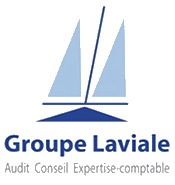1. Have there been any significant regulatory changes in France over the past 12 months?
The regulation of the profession has been profoundly changed in recent years by the movement to liberalise the activities regulated in European law.
This has resulted in consequential changes in the scope of the firms’ activities.
Changes to the regulatory scope of activities:
Regulatory scope of the activities of “experts-comptables” [chartered professional accountants]:
– Authorisation since 2015 (Macron Law) to carry out consulting work as primary assignments for a client.
– Extension (Pacte Law) of the possibilities for providing services.
Regulatory scope of the activities of “commissaires aux comptes” [statutory auditors]:
– Abolition (Pacte Law) of the requirement to certify accounts for SMEs.
– Expansion of statutory auditors’ assignments (implementation of “tax compliance review” services).
– Opening up of success fees.
– The possibility since 2017 of creating joint practices between professions in the legal, judicial and accountancy fields.
– Opening up of the capital of the firms of professional accountants (2014) to non-professionals.
These regulatory changes were made some time ago, but their implications have become more tangible over the past 12 months.
2. How would you describe the health of the accounting industry in France in terms of client demand, pressure on fees, and the recruitment and retention of personnel?
Accounting and auditing firms are positioned at the heart of all economic flows and activities, and so they support the transformations in the productive mechanism.
The pace is accelerating.
Consequently, in an increasingly complex economic, legal, and social environment, client expectations are shifting towards more integrated services and a stronger need to rely on partners who are experts in their field.
These trends are boosting the profession’s operations.
In addition, the digital shift in society is changing behaviour and expectations (requirements, volatility, speed, access to information, etc.).
At the same time, the pressure on fees is becoming more and more palpable, particularly for activities with low added value.
These services are sometimes provided almost free of charge through inexpensive or even free applications.
The turnover on traditional assignments is contracting due to combined pressure from clients, as well as strong competition for these traditional assignments.
Client demands are becoming more challenging in terms of quality and speed of processing.
With regard to recruitment: Over the past 5 years, the dynamics of recruitment have accelerated sharply: recruitment volumes have experienced an average annual growth of 6.2%; (this represents cumulative growth over 5 years of more than 30%).
The sector’s development is generating an increase in employment needs, and competition between employers is fierce.
This competition involves both employers within the sector and those outside the sector, and particularly in core professions (accounting assistants, payroll managers, and managerial and executive functions: accountancy managers, corporate directors and audit directors).
The labour shortage is the main cause of recruitment difficulties. There are approximately 16,000 unfilled positions according to a study of the profession.
3. Are there any service areas where demand has increased over the past 12 months?
There certainly are: we are seeing services for which demand has increased during the pandemic:
– Client companies’ refocusing on their core activities has prompted them to prioritise the channelling of their investments into that core business.
This phenomenon has resulted in the outsourcing of administrative functions to our profession (bookkeeping, preparation of accounts, tax and social security declarations, administrative management of staff, and invoicing and collection, as well as administrative and secretarial activities).
– An increase in requests for higher added-value support
The constantly growing complexity of the economic, legal, technical and societal environment for companies and managers (the high frequency of regulatory changes, particularly in terms of taxation, company law, social legislation, personal data protection) prompts companies to outsource in those areas.
This has helped to reinforce a growing need for clients to rely on “expert” partners, so as to integrate the changes in the environment into their business plan.
4. Has there been any significant consolidation or merger activity in the accounting profession?
The concentration of the traditional accountancy market is nothing new, but it has accelerated over the past 12 months.
Several factors have come into play:
– The current demographic ageing in the profession forces retiring partners to sell their practice for lack of an internal successor.
– The PACTE Law and the raising of audit thresholds have encouraged small firms that come in for a high level of attention from statutory auditors to band together so as not to disappear.
– The COVID-19 crisis is weakening many VSEs and SMEs, and consequently their accountants too, thus accelerating the process of consolidation within the sector.
Large firms thus find themselves in an environment that favours external growth, especially since they have significant financial resources.
As for the independents, they are increasingly coming together to pool their resources and maintain their independence by joining organisations such as ATH, France Défi and Eurus. These groups now have a membership of some 500 firms and a turnover of almost 2 billion euros.



